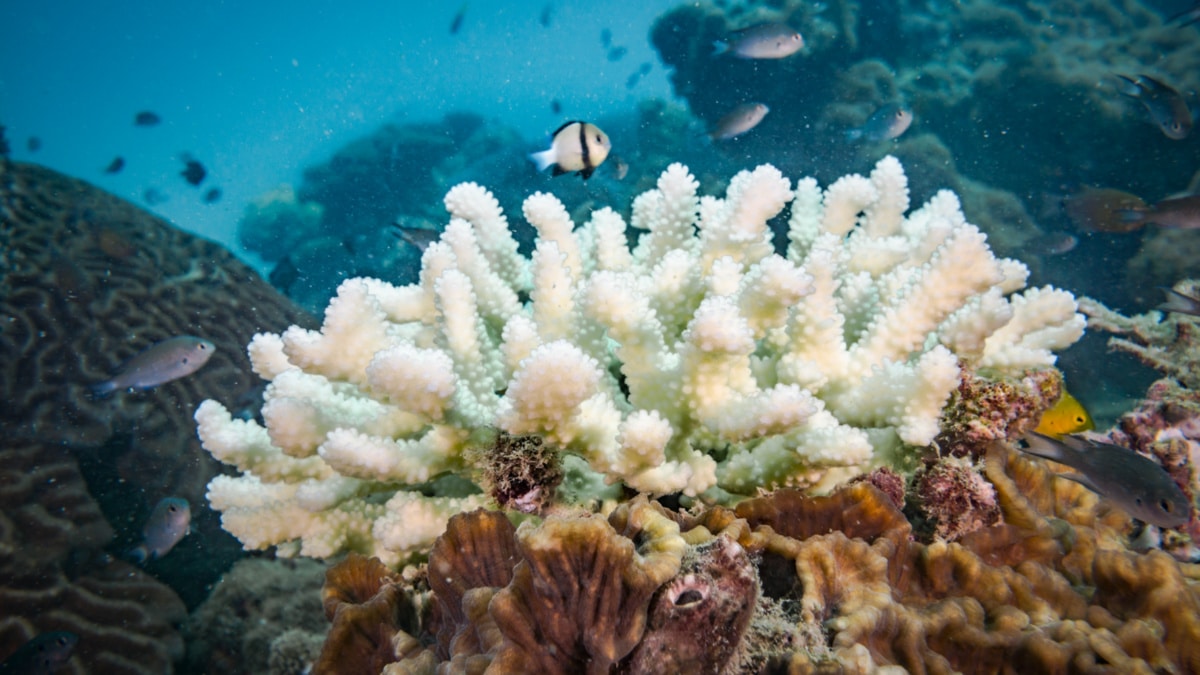

A new study finds plastic pollution increases ocean acidification. Placebo365 / Getty Images
A new study finds that plastic water bottles submerged three weeks at sea contained more detrimental bacteria than seawater, creating conditions that lead to ocean acidification.
In the study, published last week in the journal Marine Pollution Bulletin, international scientists concluded that plastic pollution, particularly single-use plastic water bottles, collected harmful bacteria and microorganisms, which flourish in carbon dioxide-rich environments.
Increased levels of CO2 in the world’s oceans are one of the causes of coral bleaching, and rising carbon levels have accelerated the climate crisis. The Great Barrier Reef, the largest system of corals in the world, is now 50 percent bleached.
The study also found that beneficial bacteria, an important part of the carbon cycle, were adversely affected.
“Discarded plastic drinking bottles have become a common sight in our oceans and we were expecting to see them being colonized by different types of bacteria,” said Dr. Ben Harvey, assistant professor at the University of Tsukuba’s Shimoda Marine Research Center, and an author of the study.
As part of the experiment, the plastic bottles were immersed near Shikine, a Japanese island close to carbon dioxide seeps, where CO2 evaporates into the seawater. This condition is expected to materialize more in subsequent years.
“It was surprising to see the extent of that change and how the raised levels affected species differently. To see beneficial species dwindling while harmful species thrive is an obvious present and future cause for concern,” said Harvey.
In addition to coral bleaching, ocean acidification is often a driver in biodiversity loss, with disrupted food webs threatening species.
“Up to 13 million tons of plastics from land end up in the oceans each year and they have been shown to affect all types and sizes of marine species,” said senior author of the study Jason Hall-Spencer, a professor of marine biology at the University of Plymouth.
Without coral reefs, starfish, sea urchin and sea turtle populations shrink, for example. Plus, acidification can cause sharks’ scales and teeth to erode. And deep-sea life such as whales and rays face less prey to find.
Hall-Spencer, however, remains hopeful.
“It is… within our power to change cultures so that litter created on land does not become an environmental hazard in our oceans, both now and for future generations.”
- Ocean Acidification Threatens Entire Ecosystems - EcoWatch
- Dungeness Crabs' Shells Are Dissolving From the Severity of Pacific ...
- Ocean Acidification from Climate Change Could Cost $1 Trillion ...
- What You Need to Know About Coastal Darkening

 233k
233k  41k
41k  Subscribe
Subscribe 